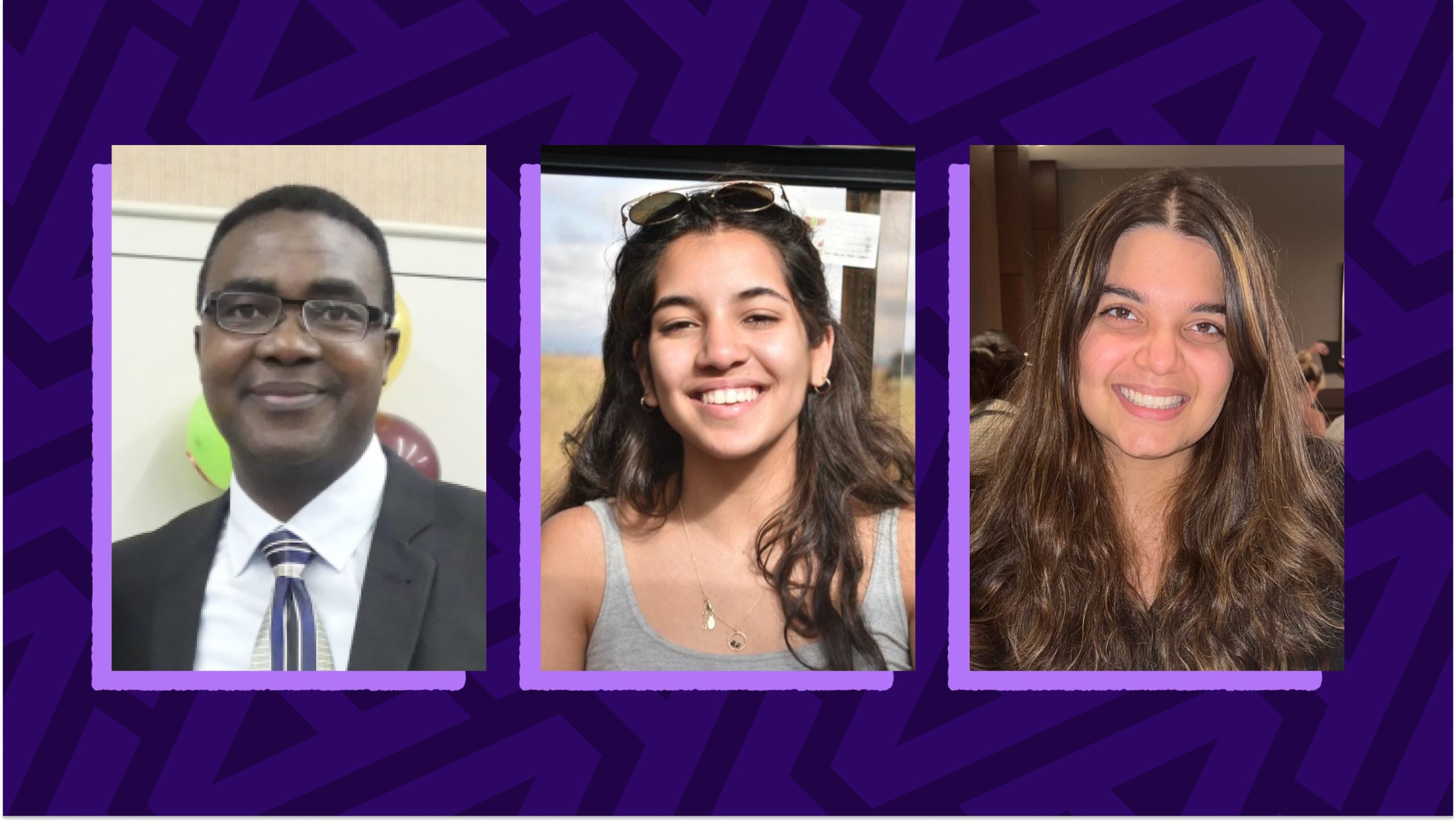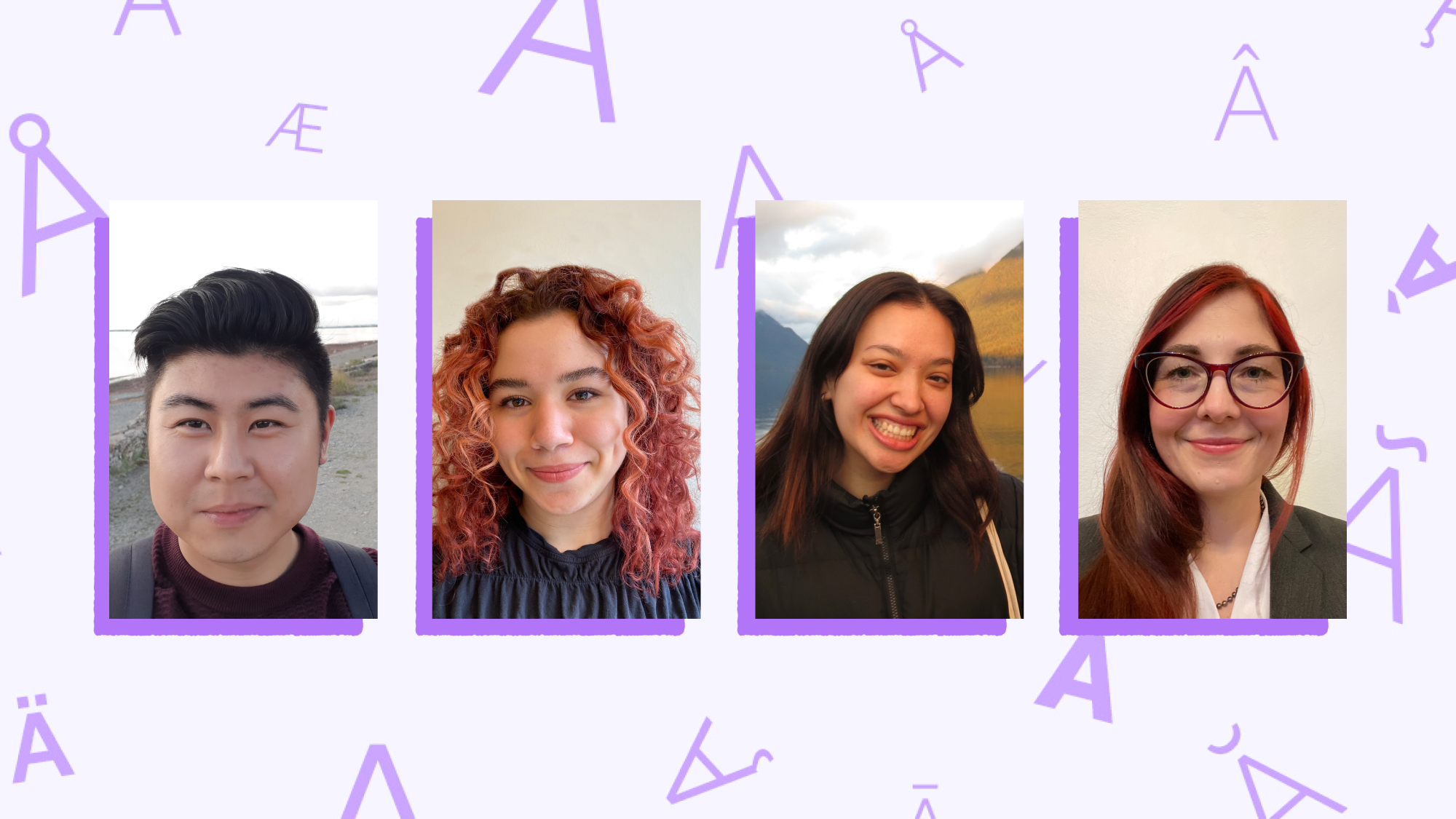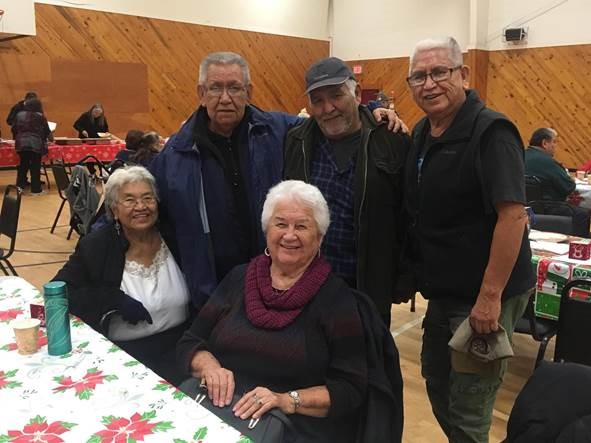

Swahili Lecturer Dr. Joash Gambarage, alongside SWAH 101 students Arissa Tejani and Shanaiya Jamal.
Last term, UBC students had the exciting opportunity to enroll in beginner Swahili courses, SWAH 101 and SWAH 102. This marked a significant moment, as it was the first time an African language was offered under its own course code at UBC. These courses provide a unique chance for a diverse range of students to explore Swahili, one of the ten most widely spoken languages globally, and delve into the rich culture it represents.
We caught up with Dr. Joash Gambarage, a Sessional Lecturer in the Department of Linguistics and Lecturer for Swahili courses, and students Arissa Tejani and Shanaiya Jamal, who took Swahili courses last semester. They shared insights on how learning Swahili has enhanced their cultural awareness and understanding of Black history and culture, discussed the importance of learning Swahili in modern society, and much more!
Why do you think learning Swahili is important in modern society?
Dr. Joash Gambarage: Swahili is spoken in 11 countries in East and Central Africa and is spoken by over 300 million people in the world. Therefore, learning Swahili is gaining access to a window through which you can see the world from a different perspective. Our world today is faced with social and cultural stereotypes about unfamiliar cultures. Learning Swahili is one way of gaining cross-cultural understanding—which is one of the best ways to combat prejudice.
Arissa: As a Kenyan, learning Swahili is increasingly valuable to me as it contributes to the preservation of Kenya’s rich cultural diversity. Embracing this language goes beyond just linguistic skills; it is a means of keeping the vibrant traditions of the nation alive. By learning Swahili, people actively participate in maintaining and celebrating the cultural tapestry of Kenya (and other Swahili speaking countries), which fosters a deeper understanding and appreciation of heritage.
Shanaiya: Beyond mere words, learning Swahili symbolizes the expressions of shared histories and a dedicated commitment to preserving cultural richness. Understanding the basics enables us to cultivate meaningful relationships with Swahili speakers worldwide, fostering a connection beyond borders and languages.
How has learning Swahili improved your cultural awareness and understanding of Black history and culture?
Arissa: I initially took Swahili to relearn the language and come back to my lost roots from when I was younger and could speak the language. We naturally put ourselves in comfortable and familiar environments, frequently never leaving them. I was forced to live outside of my comfort zone by learning the Swahili language. As a result, I developed a fresh perspective on the world, myself, and the culture that surrounds where I grew up.
Shanaiya: Learning Swahili has allowed me to connect to my East African roots and deepen my understanding of black history in a broader context. I’ve come to appreciate the diverse culture and understand the historical significance embedded in the language, recognizing its role as a means of defiance, communication, and cultural preservation throughout black history.
Dr. Gambarage: In my Swahili class, the students learn many interesting aspects of African culture such as greetings, African cuisines, marriage traditions, ways of knowing, and the philosophy of life, debunking the lazy assumption that other ethnic or racial groups have more undeserving cultures than the cultures in developed society. Undermining black people’s history started with this very stereotype. Therefore, understanding Black history starts with an understanding of the fabric of our culture, language!


“Swahili is more than a linguistic tool; it is a poetic reflection of generations of united and interconnected communities within East Africa. The words spoken today echo sentiments of those centuries ago, offering a journey into living history.”
What is the most rewarding thing about teaching Swahili?
Dr. Gambarage: Two things, first, seeing the growing interest in the Swahili language from the UBC community keeps me deeply locked in to create exciting and engaging curricula. The second rewarding thing is the diverse nature of the Swahili language. Swahili is one of the most inclusive and internally diversified languages with loads of words from Arabic, Persian, English, Hindi, Portuguese, French, and other local languages which makes it easier to learn. I teach the grammar using three simple songs (30-40 seconds each) and these songs cover up to 90% of the grammar of Swahili. I see how happy and comfortable my students are with the language and this pushes me to do more.
“I see how happy and comfortable my students are with the language and this pushes me to do more.”
What advice would you give to other students interested in learning Swahili?
Arissa: Have fun with it! Swahili is a language that is so similar to English that it almost naturally comes to you. The fact that you speak Swahili also greatly impresses others, as nobody else is aware of how simple it is.
Shanaiya: Immerse yourself not only in the language but also in the food, music, and films to truly understand the joys and history of the region. Try to practice by reading and speaking with your friends, professors, or native speakers to refine your skills and get a taste of authentic expressions. It may seem challenging initially, but be patient and persistent and celebrate milestones along the way!
“Swahili has been impacted by numerous languages due to years of intense trade along the East African coast... Speakers of Swahili have adopted aspects of English, French, Portuguese, and German, so you will be ahead of the game if you are already proficient in one of these languages!”
What was taking a Swahili course like?
Arissa: This Swahili class was one of my favourite classes at UBC. I learnt a language in a way I have never done before where the class breaks into song every day just to learn the basics of the language. Being a Kenyan, I was able to see Swahili from a different perspective and this class just further enriched my understanding of the language as a whole.
Shanaiya: My experience taking Swahili classes was wonderful. The fun songs and interactive exercises during classes helped us not only remember but also understand the different phrases/words that we came across during the term. Going forward, I will take more classes, particularly SWAH 102, as I am eager to learn more about the language and improve my skills further!
What would you like the UBC Community to know about Swahili language classes?
Dr. Gambarage: I would like to invite UBC students from all disciplines to try a Swahili language class — I am sure they will love the Swahili experience! The Swahili program is not just a course offered for students to get a language credit, but an invitation to engage in celebrating African culture and appreciating diversity.


